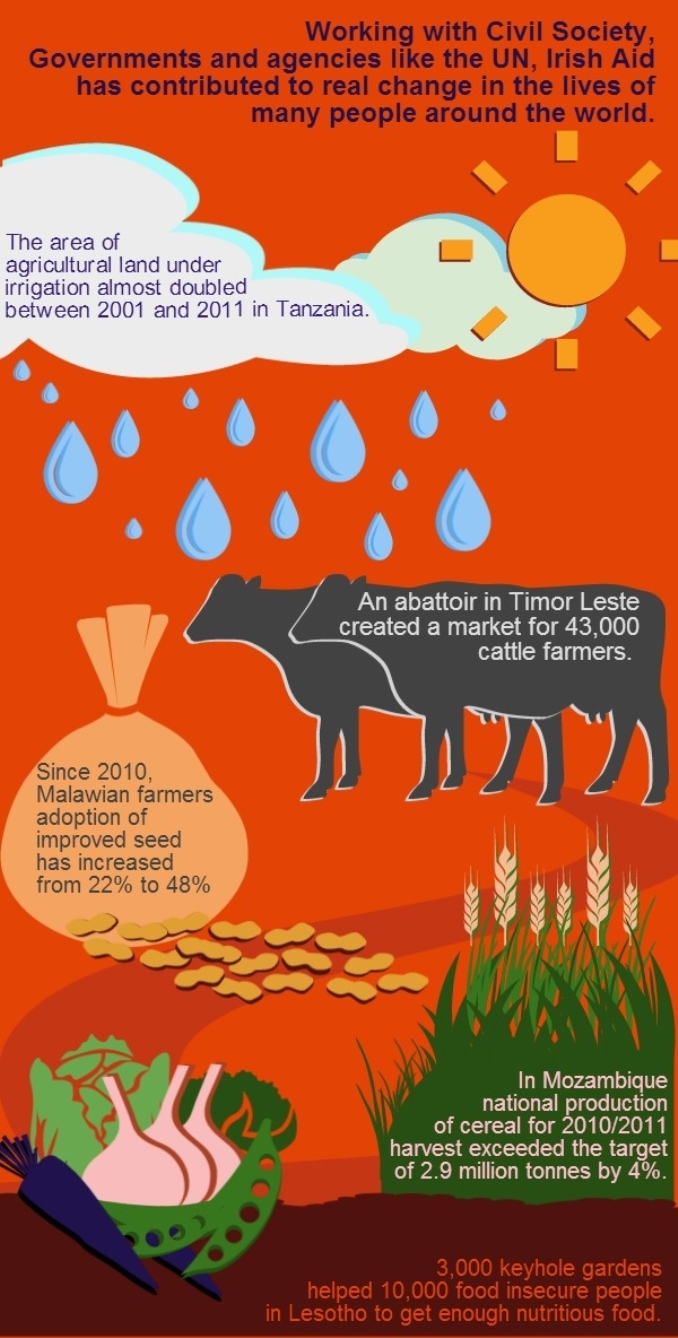Assisting farmers around the world
23/9/13
Following the seemingly endless rain of 2012 and the subsequent fodder crises, Irish farmers know all too well how vulnerable we can be to the weather.
In many parts of the world, increasingly erratic and volatile weather and changes in seasons resulting from climate change are becoming more and more common. For poor communities who depend on farming for their food and livelihood, the effects of these changing weather patterns can be devastating.
Irish Aid is working on behalf of the Irish people to support farming communities in the developing world to help them address these challenges. Our main aim is to help smallholder farmers, in particular women farmers, to produce enough nutritious food to feed themselves and their families and to cope with the effects of climate change.
We work closely with partners at national and international level to ensure that national agricultural policies respond to the needs of smallholder farmers. For example, we support governments to implement agricultural programmes that target the particular needs of smallholder farmers.
We also support efforts to improve seeds and other agricultural inputs. For example, in Malawi, we support the Government’s national Farm Input Subsidy Programme. The programme, which has contributed towards food security in Malawi, provides 1.6 million farmers each year with improved maize seeds and certified legumes, which in turn helps to improve crop productivity, soil fertility and family nutrition.
Other ways your support is making a difference include new irrigation systems which give the opportunity of a second growing season and help ensure vulnerable families have a year-round supply of food, reducing hunger. Combating soil erosion in Ethiopia, creating local milk markets in Tanzania and supporting global research on agriculture through the Consultative Group on International Agricultural Research (CGIAR) are just a few of the other ways that Ireland is helping reduce poverty and hunger in the developing world.
Almost half of our hunger budget is spent on agriculture and rural development as we believe that investing in agriculture is essential to reduce hunger and end poverty.


